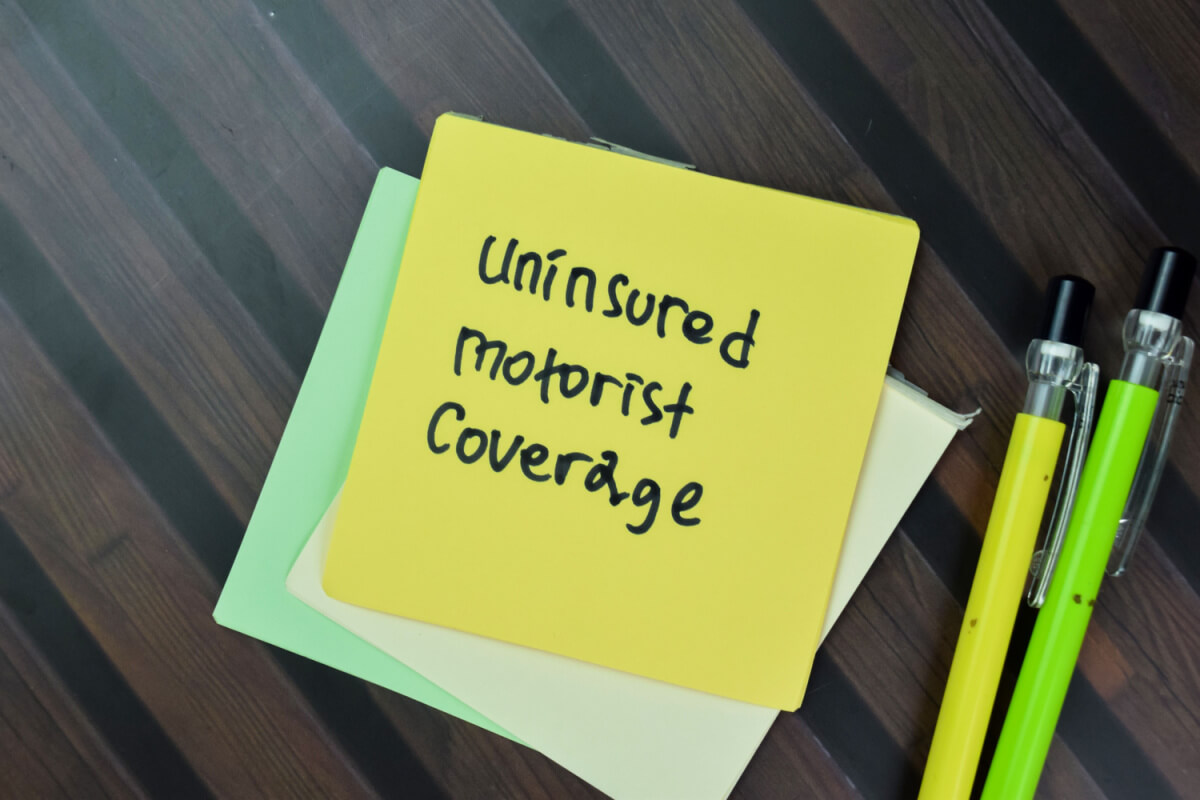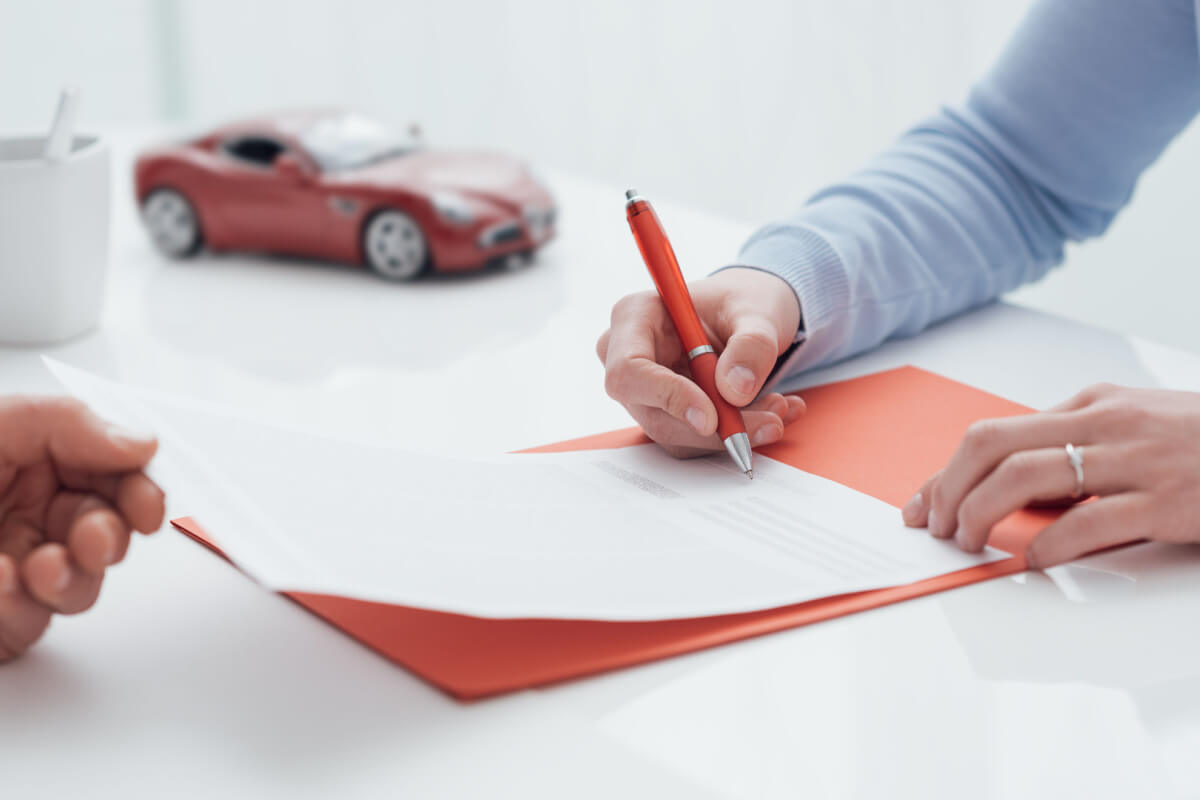
According to a 2021 report by the Insurance Research Council, 9.2 percent of motorists in West Virginia don’t carry liability insurance – nearly one in ten. For drivers in West Virginia – whether local or passing through the state – being on the road means taking an additional risk if an accident occurs. What happens when the other driver doesn’t have insurance to compensate for damages?
When involved in an accident with an uninsured motorist, understanding the claims process becomes vital. Typically, individuals turn to their insurance policies, specifically the uninsured motorist coverage, to seek compensation. This coverage is designed to protect drivers in instances where the at-fault party lacks insurance.
The process starts with reporting the accident to the insurance company. It’s important to provide detailed information about the incident and any damages incurred. Insurance companies then evaluate these claims, considering the extent of injuries and the impact on the claimant’s life.
Receiving compensation in such cases might cover medical expenses, lost wages, and other related costs. However, the amount of compensation depends on the specifics of the insurance policy and the accident details. It’s a structured process aimed at offering financial relief to those impacted by uninsured motorists.
After an accident with an uninsured driver, certain steps are important for ensuring safety and preparing for any future claims. First, safety is paramount; check for injuries and move to a safe area if possible. Then, call the police to report the accident. A police report provides an official record, which is valuable later.
Exchanging information with the other driver is the next step. Collect their name, contact details, and any vehicle information. Since the driver is uninsured, this information becomes even more important. Documenting the scene is also beneficial. Take photos of the vehicles, the accident site, and any injuries.
Finally, report the accident to your insurance company. Even though the other driver is uninsured, your policy might cover some of the damages. Keeping a record of all communications and expenses related to the accident helps in effectively managing the aftermath of such an incident.
Calculating damages in uninsured motorist cases involves several factors. First, medical expenses are considered. This includes costs for immediate treatment and any ongoing medical care required due to the accident. Lost wages are another significant factor, accounting for income lost while recovering.
Pain and suffering is a more subjective area of damage but still crucial. This encompasses the physical and emotional distress caused by the accident. The severity of injuries and their impact on daily life play a major role in determining these damages.
In some instances, property damage, such as repairs to a vehicle or replacement of personal items damaged in the accident, is also included. The total amount of damages aims to cover the financial impact of the accident on the victim’s life. Each case varies based on individual circumstances, including the extent of injuries and their long-term effects.
Victims of uninsured motorists often face unique challenges in seeking compensation for their losses. When the at-fault driver lacks insurance, traditional routes of obtaining damages through the driver’s insurance are not available. However, there are legal options available.
One common approach is to file a claim under one’s own auto insurance policy, particularly if it includes uninsured motorist (UM) coverage. UM coverage is designed to provide compensation for bodily injuries and, in some cases, property damage, when the at-fault driver is uninsured.
Another option could be pursuing a civil lawsuit against the at-fault driver. While this path may offer a way to seek compensation, it’s important to consider the financial situation of the uninsured driver, as it can impact the feasibility of collecting any awarded damages.
Additionally, some states offer special funds or programs to assist victims of uninsured motorists. These programs vary and might provide additional avenues for compensation.
Overall, while the situation is complex, victims of uninsured motorists have legal options to explore in seeking redress for their losses.
When dealing with uninsured motorist claims, several common questions arise. First, people often ask what happens if an uninsured driver hits them. In these cases, individuals can file a claim under their own insurance if they have uninsured motorist coverage.
Another frequent question is about the types of damages that can be claimed, including medical expenses, lost wages due to the inability to work, and sometimes, compensation for pain and suffering.
People also inquire about the time frame for filing an uninsured motorist claim. This varies depending on the insurance policy and state laws, but filing as soon as possible after the accident is generally advisable.
Lastly, there’s curiosity about the difference between uninsured and underinsured motorist coverage. Uninsured coverage is for accidents with drivers without insurance, while underinsured coverage applies when the at-fault driver’s insurance is insufficient to cover all damages.

Understanding insurance policies, especially regarding uninsured motorist coverage, is important for drivers. Uninsured motorist coverage is a part of an auto insurance policy that provides protection when an individual is involved in an accident with a driver who does not have insurance. This coverage can help pay for medical expenses, lost wages, and other damages.
It’s important to know that uninsured motorist coverage is optional in some states but mandatory in others. The coverage limits, which determine the maximum amount the insurance will pay, vary based on the policy and state regulations.
Additionally, this coverage not only applies to accidents with uninsured drivers but also hit-and-run incidents where the at-fault driver is not identified. Understanding the details of uninsured motorist coverage, including the limits and what it covers, is important for making informed decisions about auto insurance needs. It offers financial protection in situations where the other party cannot cover the costs.
If you have been involved in a car accident, please contact Manchin Injury Law Group online, or call our office at (304) 317-7786.

Attorney Timothy Manchin established the Manchin Injury Law Group in 2011 after his law partner of more than 25 years became a West Virginia circuit court judge. His focus is on helping individual clients and entire families victimized by negligent acts.
We offer a free initial consultation at our office in the Manchin Professional Building — our home since 1983 — conveniently located in Fairmont.
If you are unable to visit our firm, we can come to your home or hospital room.
Fill out the form below to get in touch!